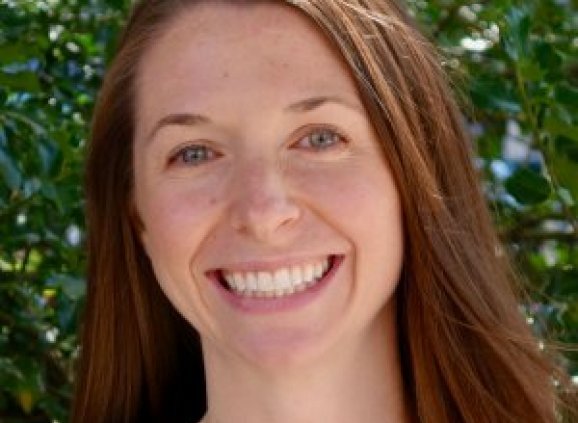
- Education Forums
From Doing to Dwelling in Abiding Community

For many of us at Trinity Church, outreach and social justice ministry represents a core expression of our Christian faith. Our scriptural and ecclesial tradition offers a plentitude of distinct yet overlapping paradigms that can ground our reasons and models for engaging in this type of service to and with our neighbors. From the Old Testament’s narratives that tell us to celebrate the goodness of all God’s creation and persevere towards liberation from slavery and oppression, to the vision cast by our national church for Radical Welcome, the Way of Love, and Becoming Beloved Community, we are repeatedly called to love God and our neighbor.
Our theme for this program year, Known and Loved, invites us to contemplate another rich theological paradigm for outreach and social justice ministry: the abiding community into which Jesus draws his disciples in the Gospel of John. God so loved the world, the Gospel tells us, that God’s Word became incarnate and entered into solidarity with humankind in the person of Jesus. What Jesus makes possible for us and asks of us in response is to become a sign of that love to the world, first by abiding in Christ and then by mutually abiding with one another in the fullness of familial love. This transformative abiding, or resting in, Christ and one another evolves out of deep encounter that opens the door for knowing, respecting, and standing in awe of one another exactly as we come and for embracing our interdependence. The promise of the abiding community is salvation: an “ever-widening circle of inclusion” (Gregory Boyle, Barking to the Choir, 2017, p. 11) where the good of all, particularly of those among us who the world insists and persists in systemically excluding, comes to fruition.
When it comes to outreach and social justice ministry, the paradigm of the abiding community invites us to shift our energies from doing to dwelling, from fixing and helping to attending and responding in love, with hope in the movement of the Holy Spirit and the promise of the abiding community. As we come to understand ourselves and respond to one another as known and loved within our own parish, my prayer is that we also turn our attention to knowing and loving in the contexts of our existing community partnerships and our internal racial justice ministry. In doing so, our Christian hope is that the kingdom of God reflected so exquisitely in the abiding community becomes ever more tangible in our church and in our city.
I invite you to prayerfully consider where and how God has called or might be calling you to abide in mutual, inclusive love as we start our program year together. The Outreach (Serve the City) Calendar has a wide variety of opportunities to get involved through Trinity and our partners. A few unique activities of special note include:
Become a classroom assistant or library volunteer for the 2019-2020 school year; there is a particular need for volunteers this fall at the Dever Elementary Library, to keep this resource available every school day for the Dever’s K-6 grade children.
Sundays, Sept. 22 & 29 –
Reflect on the The New York Times’ 1619 Project and the impact of slavery and black resilience on American democracy, economy, and culture with Anti-Racism Team’s Talking Circle.
Tues., Oct.8 –
All parishioners engaged in outreach and social justice ministry are encouraged to attend an evening of fellowship, prayer, reflection, and visioning over a light dinner.
Sundays, Nov. 10 & 17 –
As part of our exploration of the Known and Loved theme this fall’s Forums, please join us these two Sundays to learn more about Loving Our Neighbors, through stories from Trinity Boston Connects and Trinity Church’s Outreach and Social Justice Ministry Partners.
I look forward to seeing you this fall!
Faithfully,
Katie Day
Outreach Manager
- January 2024
- December 2023
- November 2023
- October 2023
- September 2023
- June 2023
- May 2023
- April 2023
- March 2023
- February 2023
- January 2023
- December 2022
- November 2022
- October 2022
- June 2022
- May 2022
- April 2022
- March 2022
- February 2022
- January 2022
- November 2021
- October 2021
- September 2021
- August 2021
- July 2021
- June 2021
- May 2021
- April 2021
- March 2021
- February 2021
- January 2021
- December 2020
- November 2020
- October 2020
- September 2020
- August 2020
- July 2020
- March 2020
- February 2020
- January 2020
- December 2019
- November 2019
- October 2019
- September 2019
- August 2019
- July 2019
- June 2019
- May 2019
- April 2019
- March 2019
- February 2019
- January 2019
- December 2018
- November 2018
- October 2018
- September 2018
- August 2018
- July 2018
- June 2018
- May 2018
- April 2018
- March 2018
- February 2018
- January 2018
- December 2017
- November 2017
- October 2017
- September 2017
- July 2017
- May 2017
- April 2017
- March 2017
- February 2017
- January 2017
- December 2016
- November 2016
- October 2016
- September 2016
- August 2016
- May 2016
- April 2016
- March 2016
- February 2016
- January 2016
- December 2015
- November 2015
- October 2015
- October 2013
- September 2013
At "Educational Forums," enrich your spiritual journey by exploring our resources including videos of lectures, essays by priests, and other pieces about our faith, our church, and what it means to be a disciple of Jesus in the 21st century.


Comments